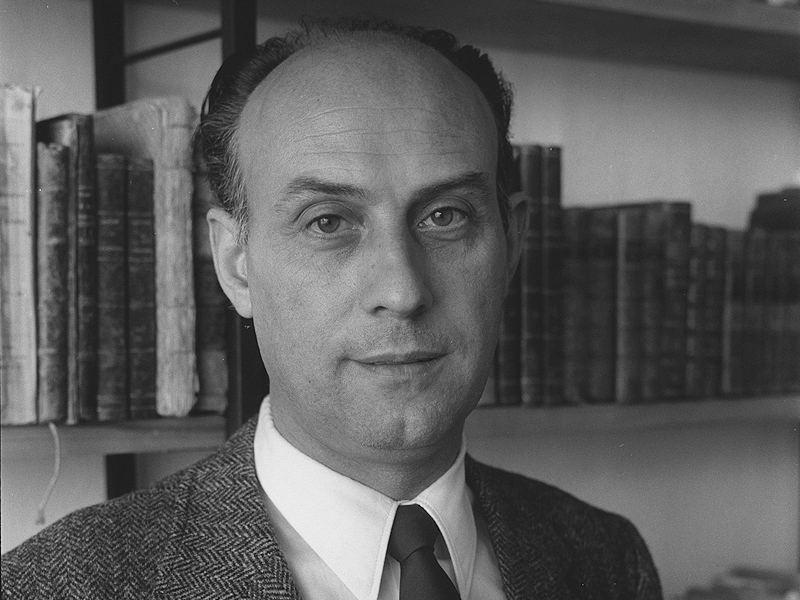History of the School
-
1955
School of History
The School of Philosophy and Letters began in 1955 as the School of History. The classrooms were installed on the third floor of the Museum of Navarra, which was ceded by the Diputación Foral.
Federico Suárez was in charge of the new School of History of the Estudio General de Navarra.
Eleven were the first students of the School of History (three attended as listeners), for whom there were five professors.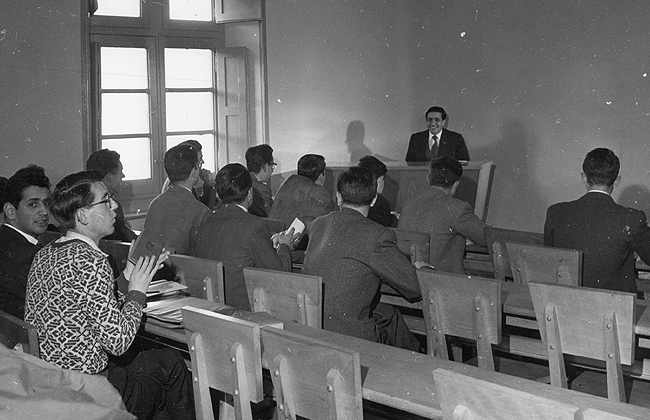
-
1957/58
New subjects and new teachers
The 1957-58 academic year was inaugurated by Professor Antonio Fontán, who had recently joined School. Once the two common courses were finished, the first year of specialization in History began, with new subjects and, therefore, new professors.
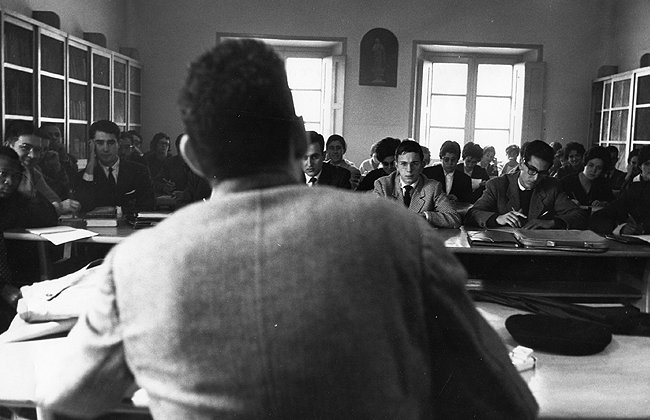
-
1960
Liberal Arts Institute
In 1960, the School launched the high school Liberal Arts, a semi-autonomous center within the School, whose first director was William Stetson, an American professor. In its first year, thirteen students attended programs of study in Liberal Arts.
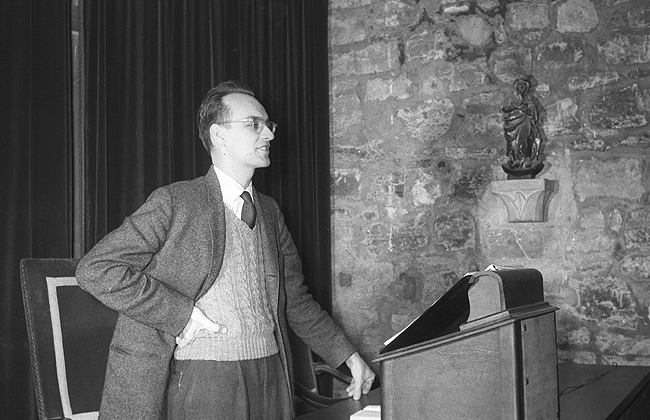
-
1961/62
Section of Philosophy
In the 61-62 academic year, the Philosophy section of School began its activity. It was initiated, among other professors, by Leonardo Polo, Joaquín Ferrer, Frederik Wilhelmsen, James Colbert, Jesús García, Patricio Peñalver, José Mª Martínez Doral and Wolfgang Strobl.
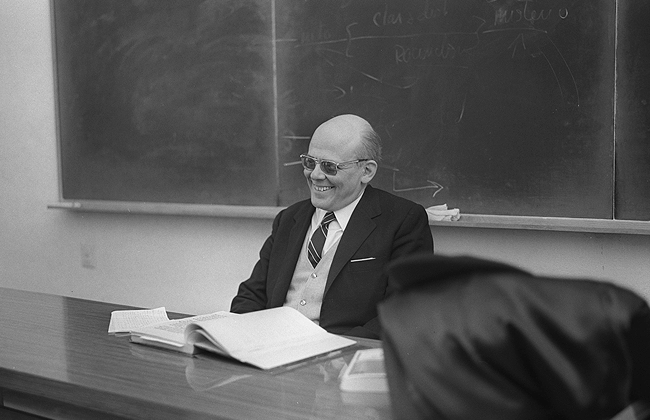
-
1963
Chair of language and Basque Culture
On November 16, 1963 the Chair of language and Basque Culture was created, although its activities began a few months later. Its first director, invited by the then Dean Antonio Fontán, was the priest José Miguel de Barandiarán.
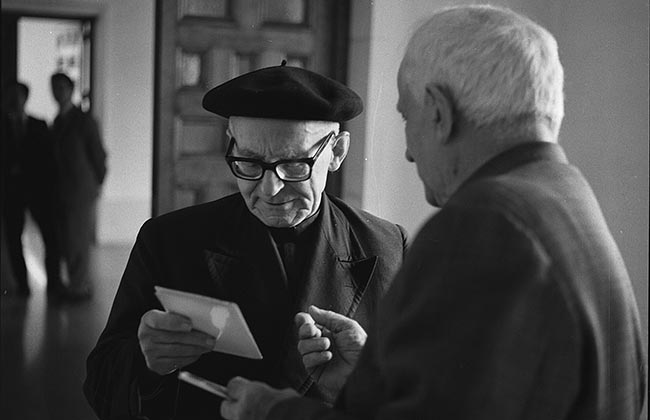
-
1963
Philosophical Meetings
Also in 1963, the first Philosophical Meetings were held, dealing with "Nothingness". Since then, this international congress has been held every year, except in 2003 and in 2020, because of the Covid-19 pandemic.
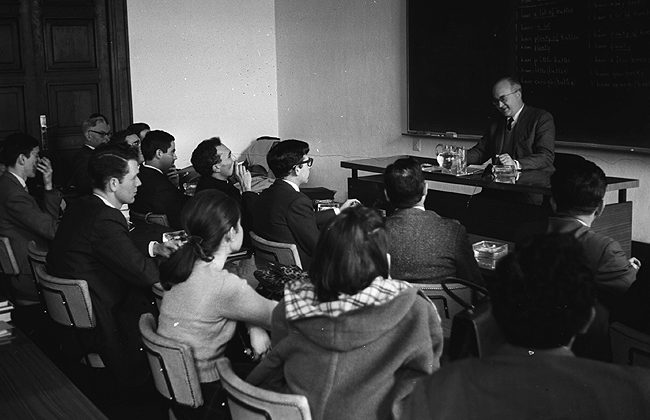
-
1964
Doctor 'Honoris Causa
In 1964, the University awarded for the first time the Degree of Doctor 'Honoris Causa'. Miguel Sancho Izquierdo received the distinction at proposal from Philosophy y Letras. Since then the School has added another 8 honorary doctors to its faculty.
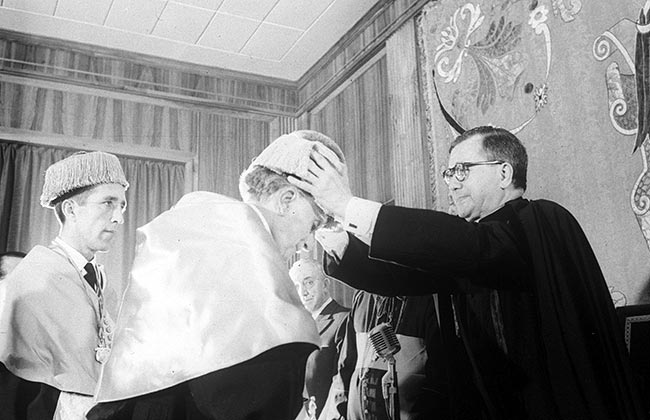
-
1964/65
Central Building
In the 1964/65 academic year, Central Building was inaugurated. The classes of Philosophy and Letters were moved there.
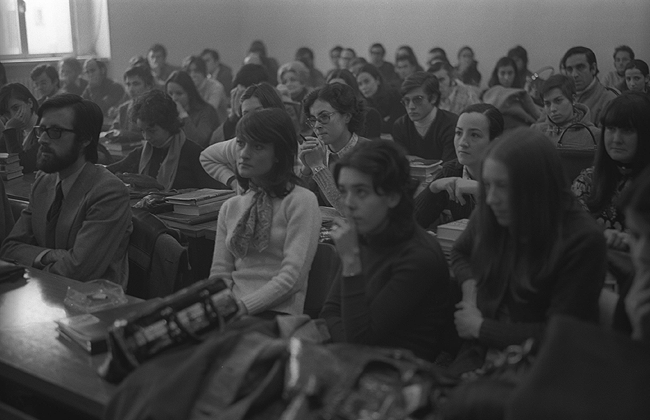
-
1967
Institute of language and Spanish Culture (ILCE)
Since 1954, the School offered summer courses to international students to facilitate their knowledge of language and culture. In 1964 these teachings were extended to the entire academic year. And in 1967, the high school of language and Spanish Culture (ILCE) was created.
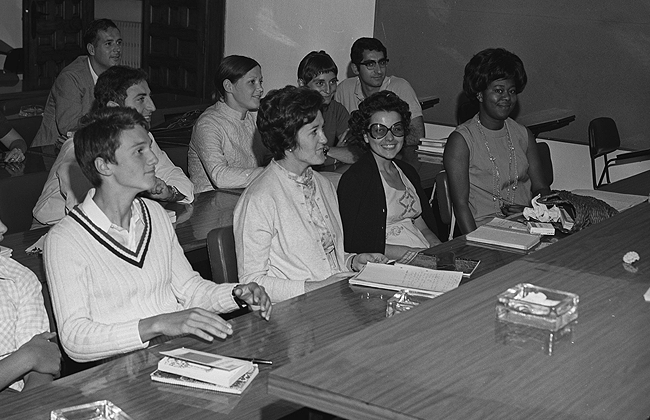
-
1972
International History Conversations
In 1972 the first International History Talks were held, whose conference proceedings were published two years later, in 1974. They dealt with 'The historical method'. These have been followed by seven other editions, in 1979, 1984, 1988, 1993, 1997, 2002 and 2010.
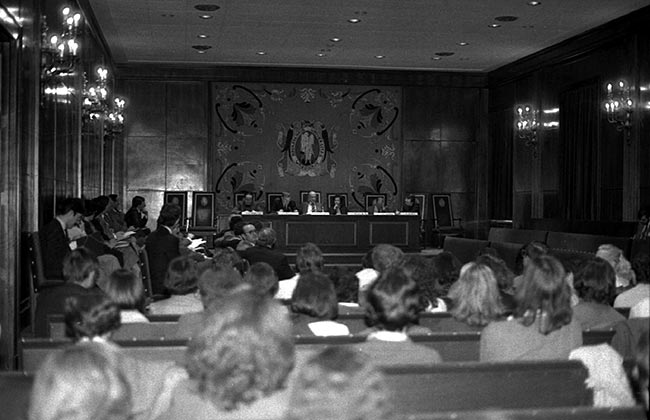
-
1975
Section of Life Sciences Education
In 1975, the School launched the Science section of the Education, which was born closely linked to the high school of Sciences of the Education (ICE), founded 10 years earlier as an autonomous high school , under the Office of the Executive Council.
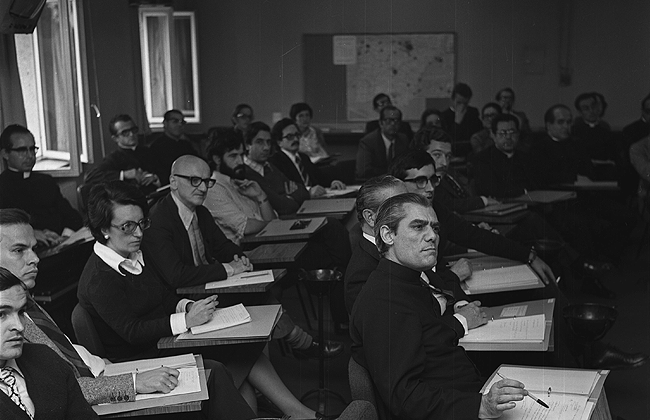
-
1977
Catalog Monumental of Navarra
In 1977, the department of Art History of the School began the elaboration of the Catalog Monumental de Navarra, together with the Institución Príncipe de Viana and the Archbishopric of Pamplona. The project was directed by Concepción García Gainza.
The Catalog was completed in 1997. Its results were published in nine volumes, a database was prepared with its contents and all its photographic collections were digitized, comprising some 40,000 photographs.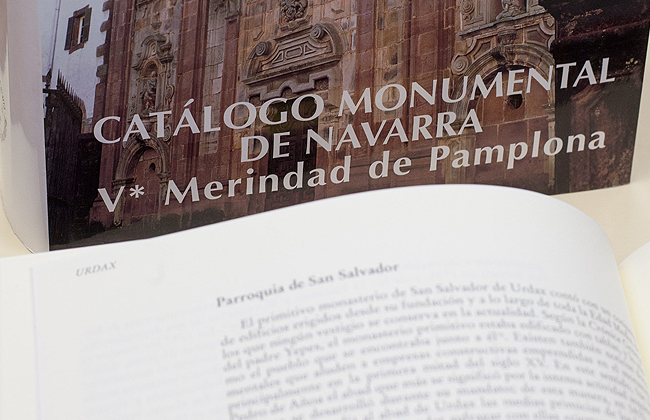
-
1986
Institute business and Humanism
In 1986, the high school business y Humanismo was launched. Together with some men from business, it was promoted by the professors of School Alejandro Llano, Leonardo Polo, Rafael Alvira and Jaime Benguría. In the academic year 2017/18 the high school was integrated into the School of Economics.
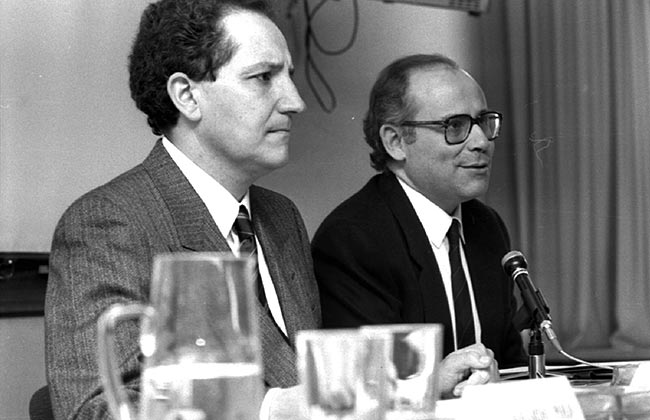
-
1990
Golden Age
In 1990, Professor Ignacio Arellano founded the group de research Siglo de Oro (GRISO), which brings together 11 researchers from School and about 40 associate members from different universities and cultural institutions, both Spanish and foreign.
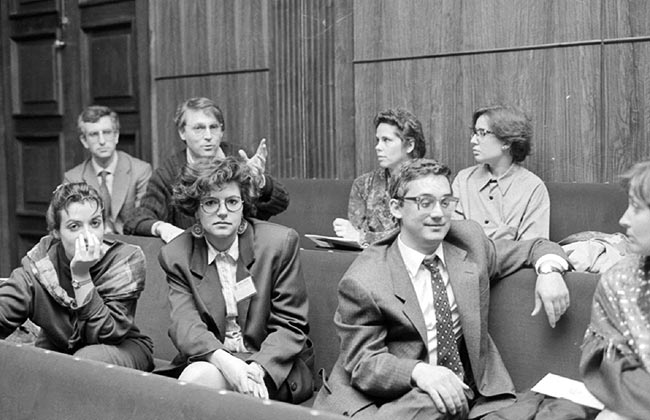
-
2001
Double degree program's
In 2001 the School of Philosophy began to offer double Degrees with Communication; and in 2015 the double Degrees with Law were created.
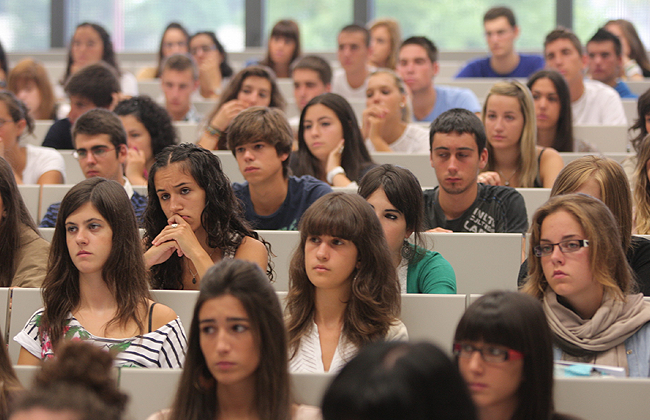
-
2005
Chair of Heritage and Art in Navarre
In 2005 the School created the Chair de Patrimonio y Arte Navarro, sponsored by the Government of Navarra. Its goal is to put at the service of society the knowledge of Navarre's heritage after the decades of study that crystallized in the Catalog Monumental de Navarra.
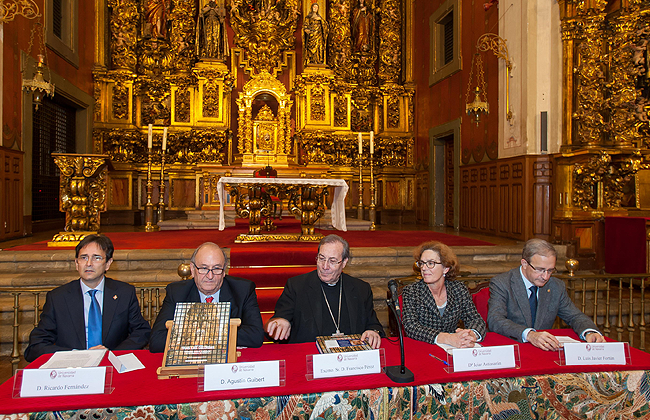
-
2016
Diploma in Archaeology
In 2016 the Archaeology Club was launched, to energize the programs of study on the ancient world and archaeological culture. In 2018 it gave rise to the Diploma in Archaeology, directed by the Full Professor of Ancient History Javier Andreu.
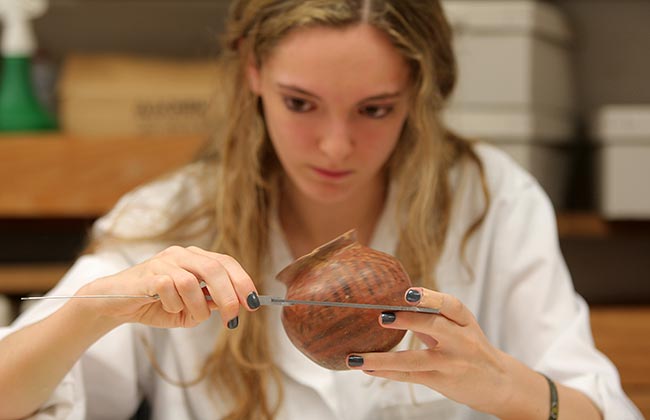
-
2016
Theses
On January 22, 2016, Violetta Dmitrenko defended at the School of Philosophy and Letters the thesis issue 1000. The first one had been defended by Gerald Francis Lange in the academic year 1963/64.
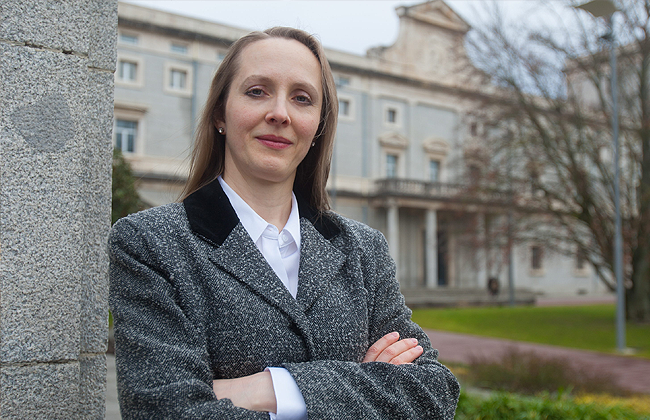
-
2017
Writing Centre
In 2017, the School launched the department Writing Center at Philology, which seeks to enhance the development of the skill written of students while pursuing their programs of study, through personalized tutoring and workshops.
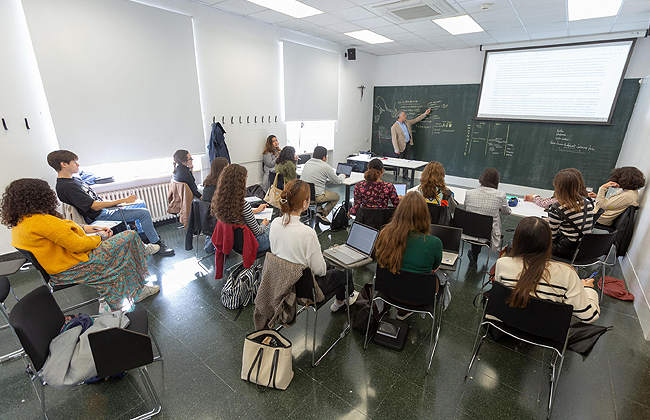
-
2018
laboratory Speech
The School created in 2018 the laboratory of Speech. Equipped with state-of-the-art equipment, the laboratory studies the mechanical level of speech and the relationship between the higher, cognitive level of language and the mechanical level.
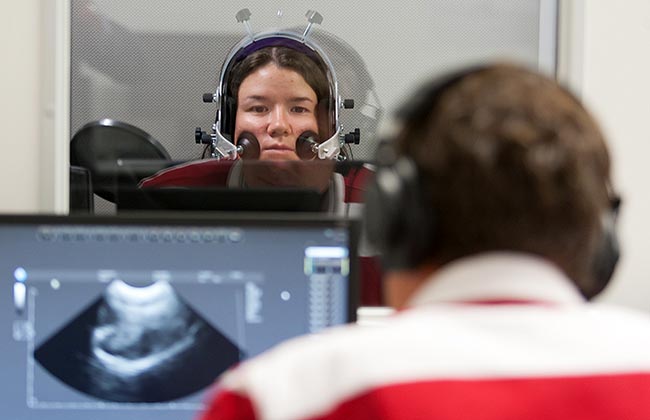
-
2020
laboratory from Humanities Digital
In 2020, the School launched the laboratory de Humanities Digitales, an interdisciplinary center, professor and researcher. It seeks to provide tools and knowledge in the field of digital culture, for the cultivation and dissemination of Humanities.
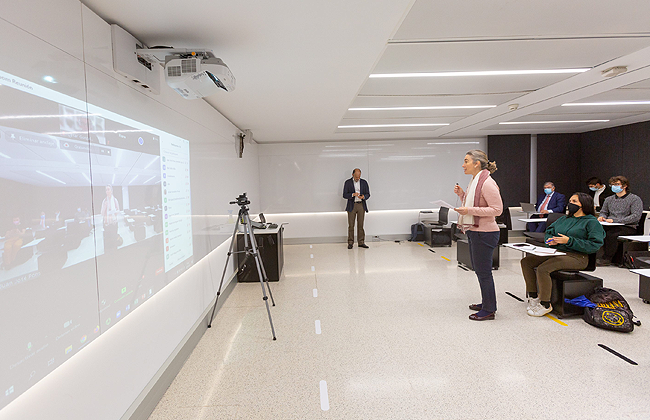
-
2022
New academic programs
In the last decade, the School has expanded its academic programs with the creation of the Degree in Philosophy, Politics and Economics (PPE), in 2018; and the Degree in language and Spanish Literature, in 2022.
Six decades after its launch, the School has more than 8,251 alumni in over 30 countries.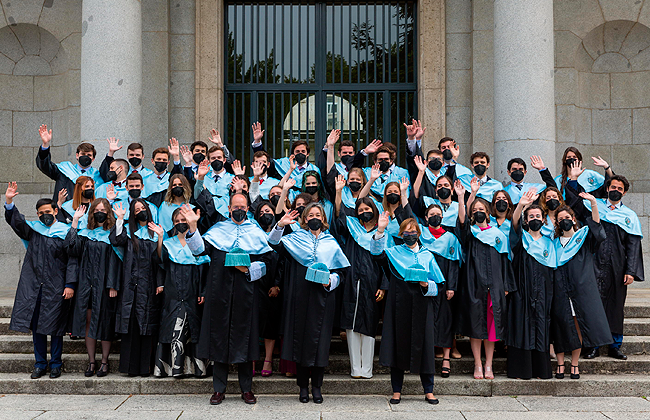
-
2022/2023
Master's Degree in Christianity and Contemporary Culture
For the 2022/23 academic year, the School has also expanded its offerings at postgraduate program with the Master's Degree in Christianity and Contemporary Culture. The program is offered at campus in Madrid and has 40 students in its first class.
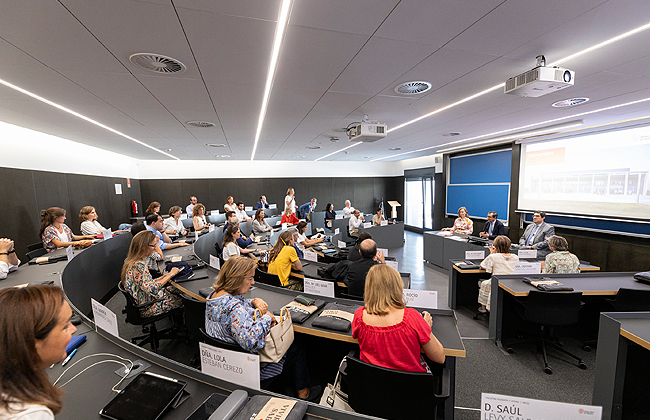
SOME OF THE PIONEERS OF THE SCHOOL
The School of Philosophy and Letters was born in the academic year 1955/56 with the History Section. Its first director was Federico Suárez. Together with him, who taught "Universal History", four other professors formed the first faculty of the School: Fernando González Ollé, Leonardo Polo, Juan José Ochoa and Ángel García Dorronsoro.
Later came others, such as Antonio Fontán, Francisco Sanmartí, Jorge Pérez Ballestar, Patricio Peñalver, Frederik D. Wilhelmsen, Jesús García López, Wolfgang Strobl, Salvador Mensua, Alejandro Marcos Pous, Santos García Larragueta, Ángel Martín Duque, José Luis Comellas, Luis Miguel Enciso, Vicente Cacho Pou, José Rogelio Buendía, Alfredo Floristán, Manuel Ferrer, Rafael Benítez Claros, Jesús Cañedo, Ana Echaide, Agustín López Kindler, Carmen Castillo and Valentín Vázquez de Prada.
In 1975 the Section of Education was created, with pioneers such as José Luis González-Simancas, David Isaacs, Oliveros Fernández Otero, Ana María Navarro and Emilio Redondo.
In the 70s and 80s more professors joined the group, some of them disciples of the first ones, whose names are also a reference in the School. Among them, Rafael Alvira, Alejandro Llano, María Victoria Romero, Concepción García Gaínza, Ángel Luis González, Fernando de Meer, Amparo Castiella, Carmen Purroy, Juan Cruz Cruz, Ignacio Olábarri, Eloisa Méndez, Ángel Raimundo Fernández, Alban d'Entremont, Jaime Nubiola, María Antonia Labrada, Ignacio Arellano or Carmen Saralegui.
* Click on the image to learn more about the pioneers of the School
Federico Suarez
Federico Suárez was the first director of the School of Philosophy y Letras (then School of History). He came to Pamplona from the University of Santiago de Compostela, where he was Full Professor of Modern and Contemporary Spanish History since 1948.
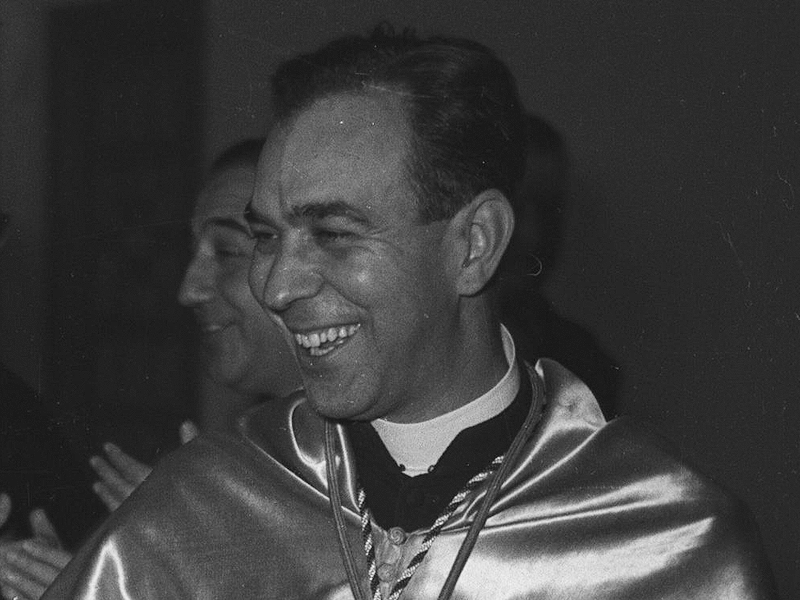
Fernando González Ollé
Fernando González Ollé explained "Latin", "language Spanish" and "Spanish Literature". At School he was promoter of the high school of language and Spanish Culture (ILCE).
In 1985 he was appointed corresponding member of the Real Academia Española de la language.
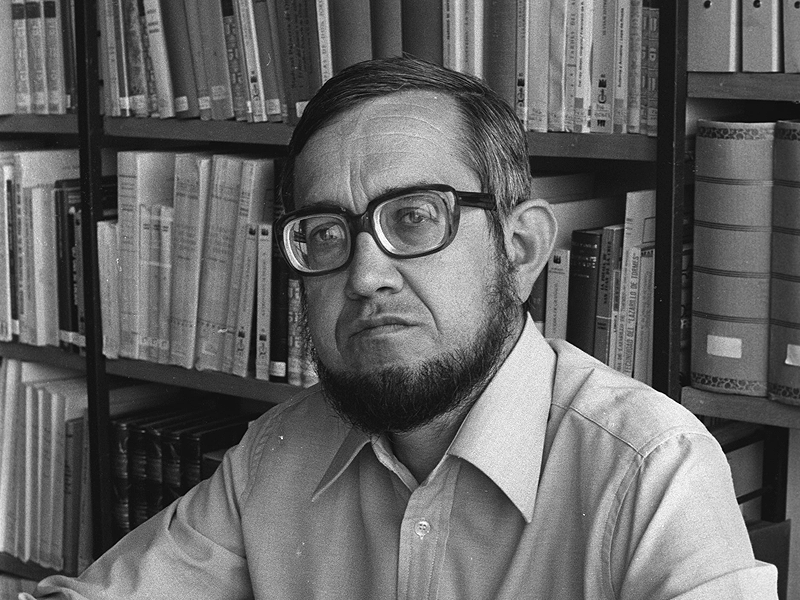
Leonardo Polo
Leonardo Polo graduated in Law in 1949; and later, he completed the licentiate degree and the doctorate at Philosophy. He joined the School to teach the subject of "Philosophy". He held various positions, such as director of programs of study.
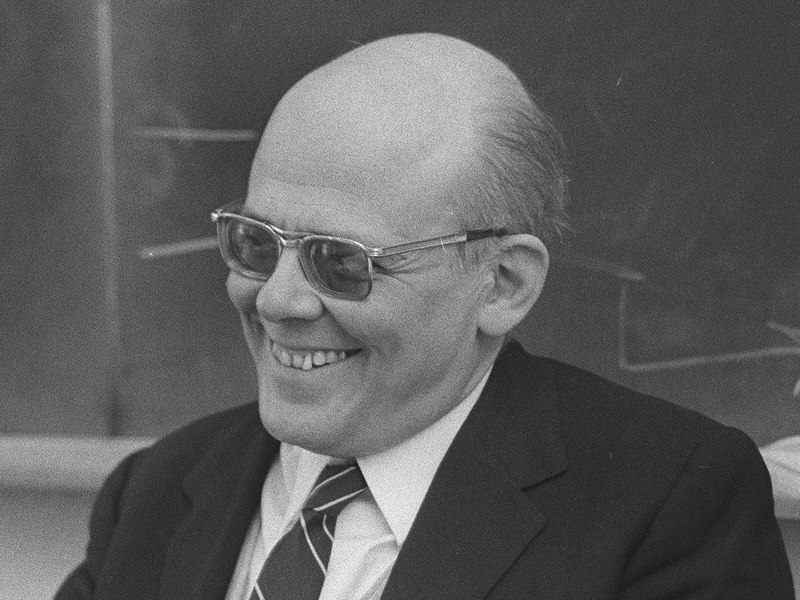
Ángel García Dorronsoro
Ángel García Dorronsoro completed the first faculty of the School, formed by five professors. He was already teaching at School Law, and when Philosophy y Letras was created, he joined as professor of "History of Art".
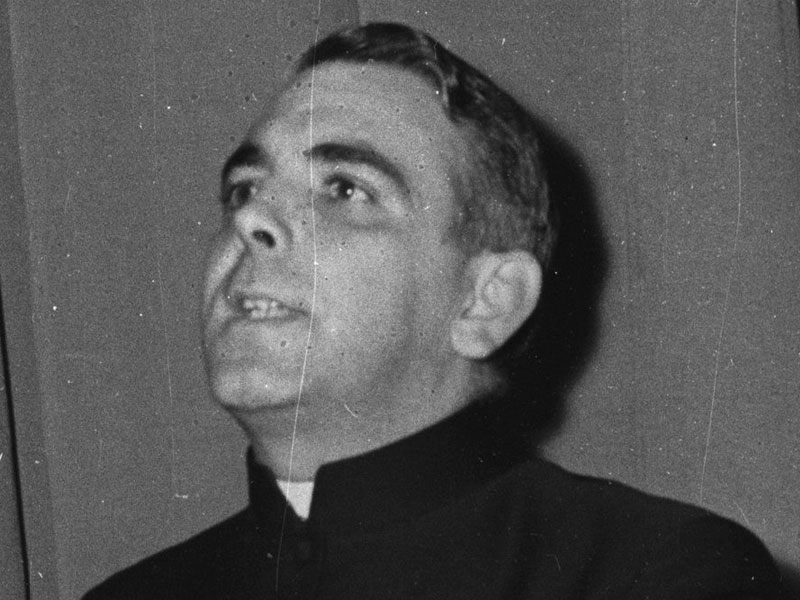
Antonio Fontán
In the academic year 57/58 Antonio Fontán, Full Professor of Philology at the University of Granada, joined School . He replaced Federico Suárez as Dean in 1960. He combined the position with the direction of the magazine 'Nuestro Tiempo' and the launching of the high school de Periodismo (today, School de Comunicación).
Years later, he was the first president of the Senate under democracy.
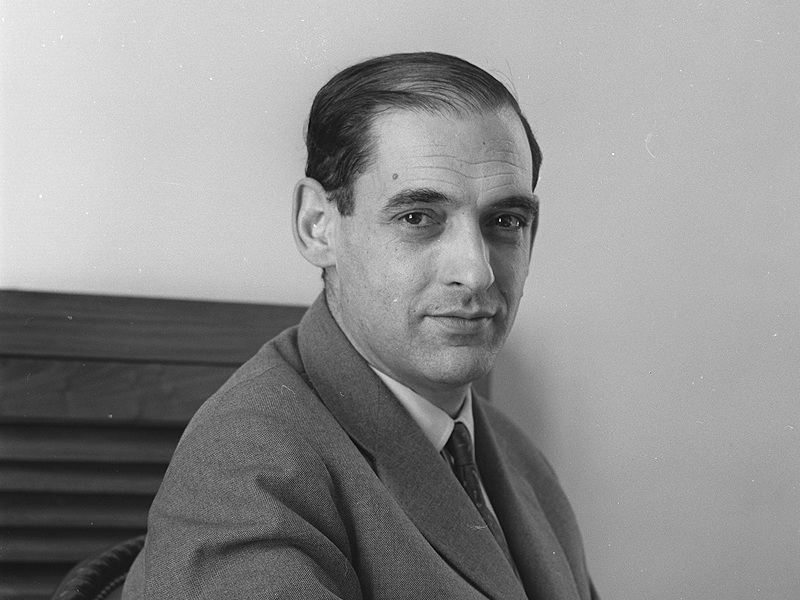
Francisco Sanmartí
Francisco Sanmartí, holder of Philology Greek in Barcelona, taught in the programs of study Commons, together with José Juan Ochoa, the language and Hellenic literature.
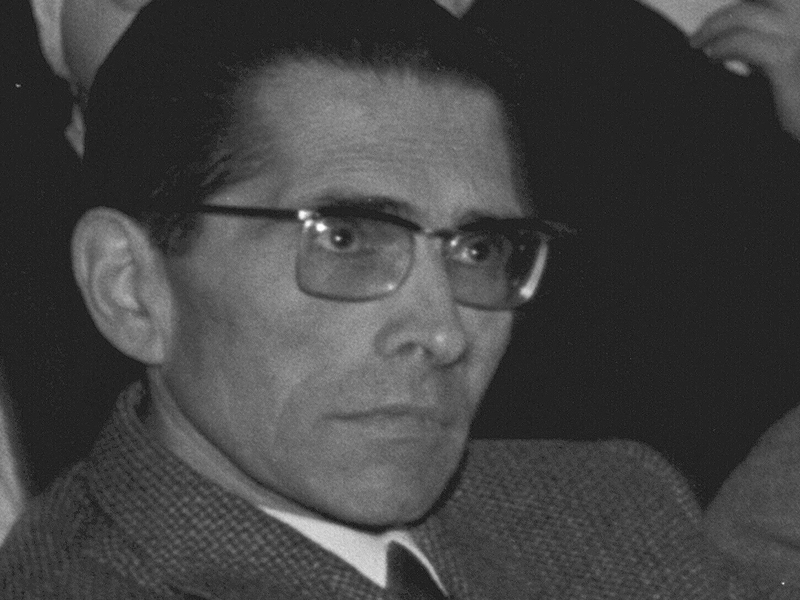
Jorge Pérez Ballestar
Jorge Pérez Ballestar was one of the first professors of the nascent Section of Philosophy. He joined School from the University of Barcelona. He was, in those years, the most outstanding Spanish specialist in modern logic.
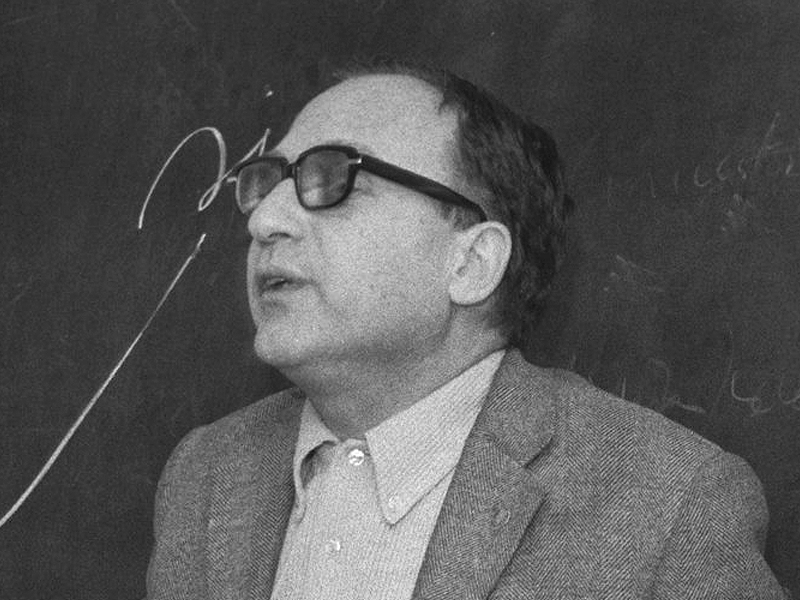
Patricio Peñalver
Patricio Peñalver Simó, Full Professor in Granada, was also one of the first professors of the Section of Philosophy of the School. He was an outstanding historian of that discipline.
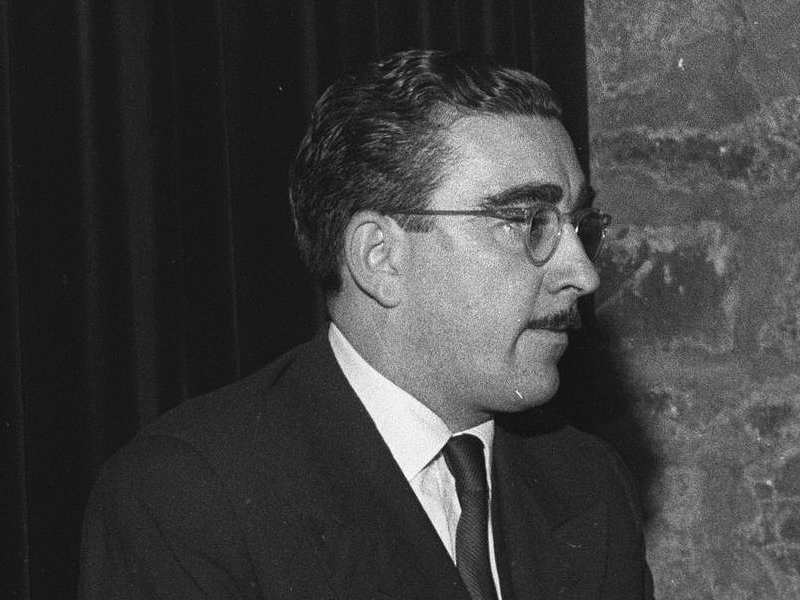
Frederik D. Wilhelmsen
The American Frederik D. Wilhelmsen was another outstanding philosopher in the initial steps of the School. He had a long experience professor in his country. After a few years in Pamplona, he returned to the United States.
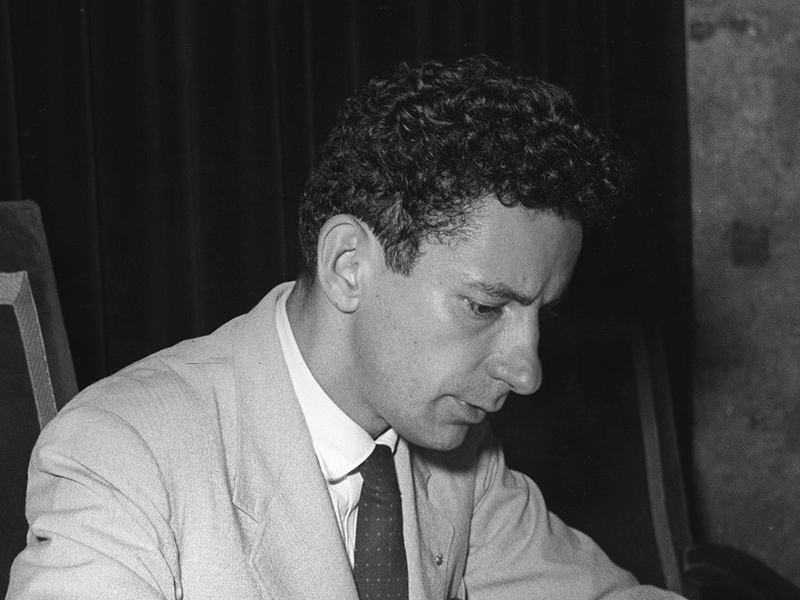
Jesus Garcia Lopez
Another pioneer of the Philosophy section of the School was Jesús García López. He became Associate Dean. He obtained, first, the Chair of Fundamentos de Philosophy; then, that of Logic; and, finally, that of Metaphysics.
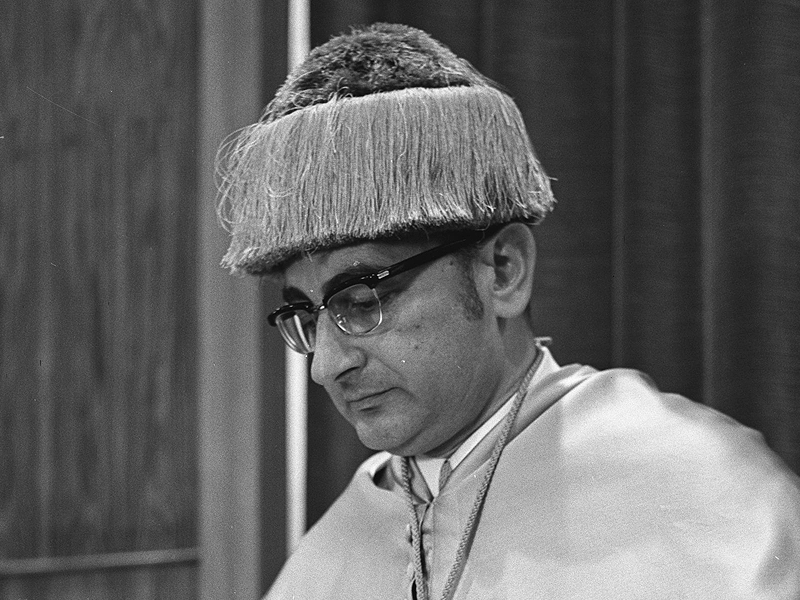
Wolfgang Strobl
Wolfgang Strobl joined the School in 1964 as Professor of Philosophy of Nature. From 1967 he continued explaining the same subject as Extraordinary Professor. He was Full Professor of Philosophy of Sciences at the Pontifical University of Salamanca.
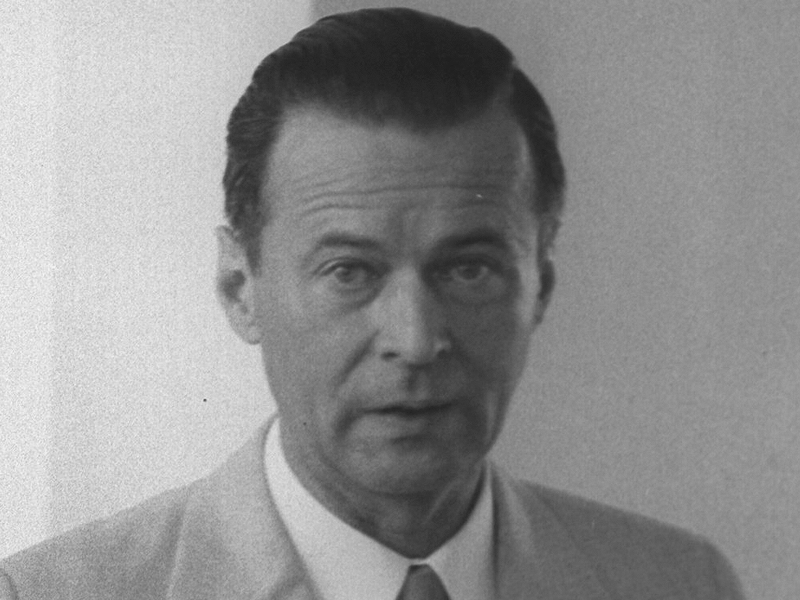
Salvador Mensua
In those early years, the geographer Salvador Mensua also joined School . He was Full Professor at the University of Zaragoza, after having published an important work by research on the physical, economic and human geography of Navarra average.
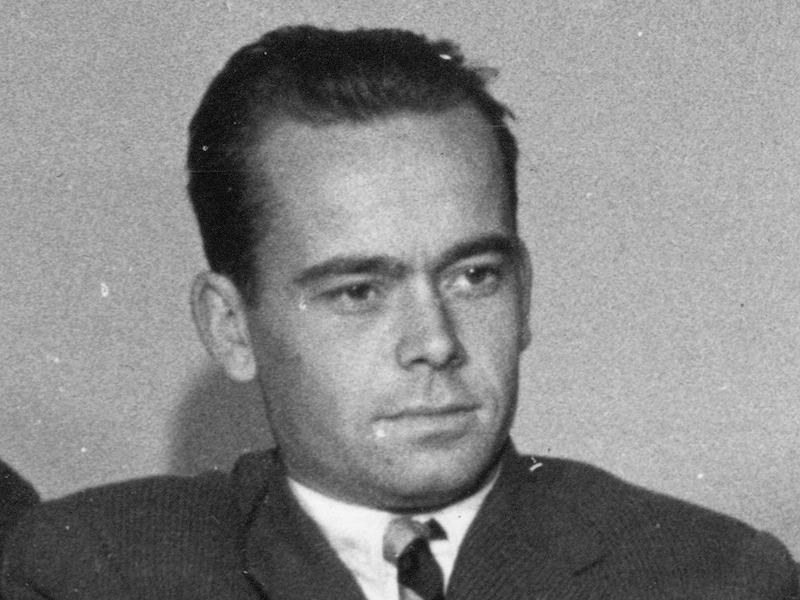
Alejandro Marcos Pous
Another of the first professors of the School was Alejandro Marcos Pous, specialized in paleochristian archaeology in Rome, who had doctorate with a study on the 'canceles' at the University of Madrid.
He then worked for years at the Museum of Cordoba.
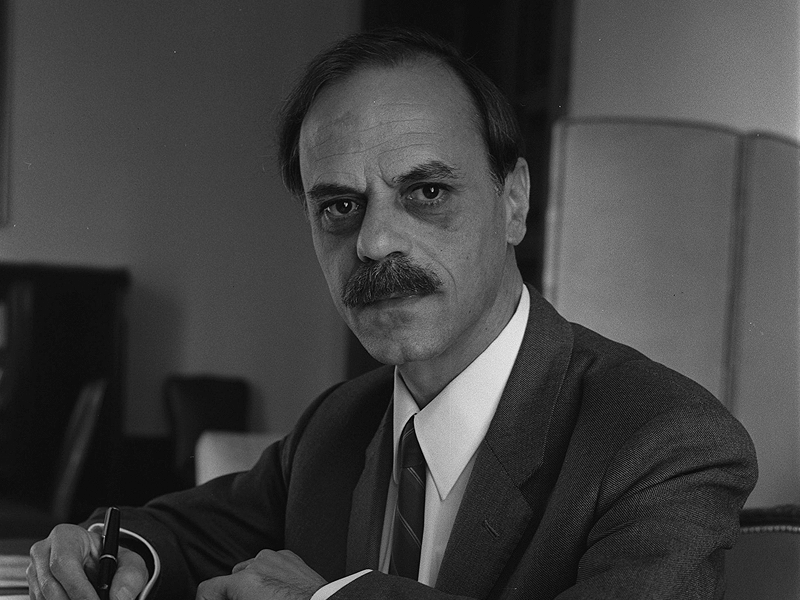
Santos García Larragueta
Santos García Larragueta was one of the medievalists of the first years of Philosophy y Letras. He began to collaborate with the School being Full Professor of teaching average in Pamplona. He later obtained the Chair at the University of Oviedo.
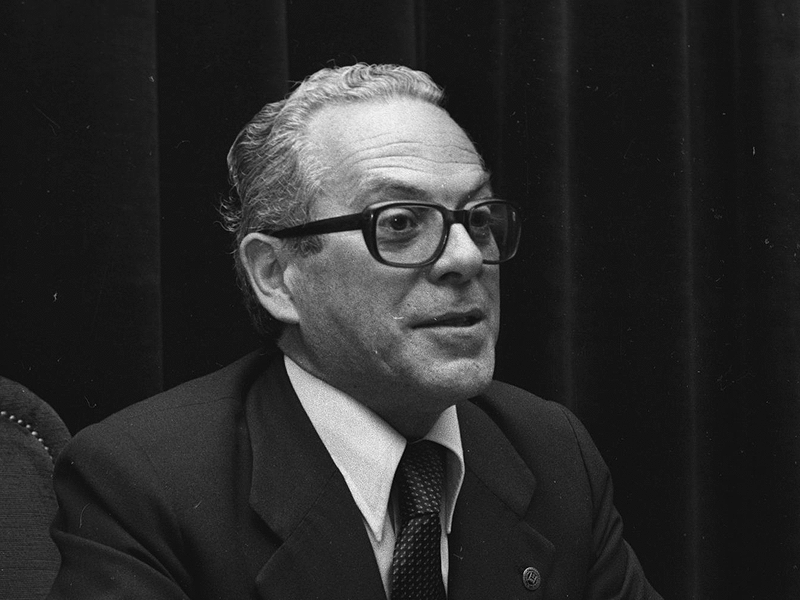
Ángel Martín Duque
Ángel Martín Duque, disciple and partner of the Navarrese José María Lacarra, arrived at School from Zaragoza. He soon won the university Chair of "History of the Age average". He was Dean (1976 - 1981), and for some time, he was also in charge of the Library Services of the University.
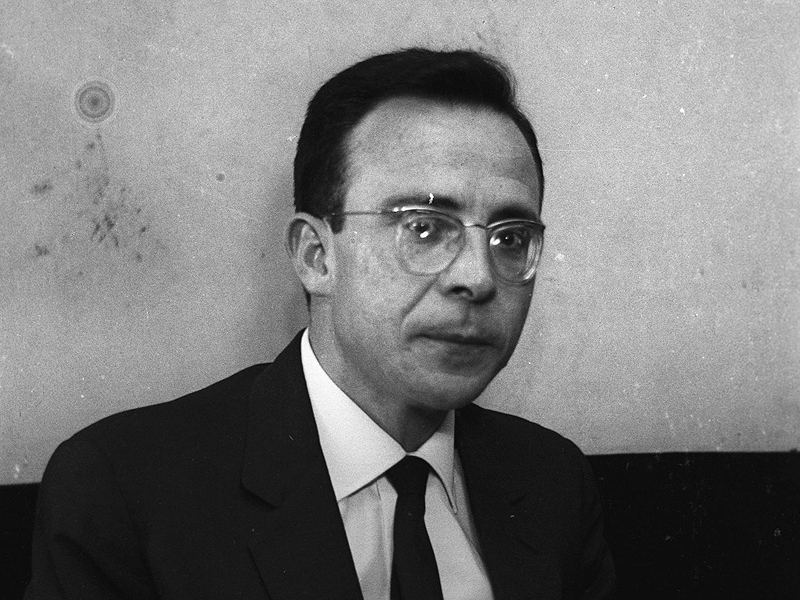
José Rogelio Buendía
After Ángel García Dorronsoro, José Rogelio Buendía was professor of "History of Art" at School, for several courses. He was the one who set up the instructions of the subject, which was later continued, for example, by his disciple Concepción García Gaínza.
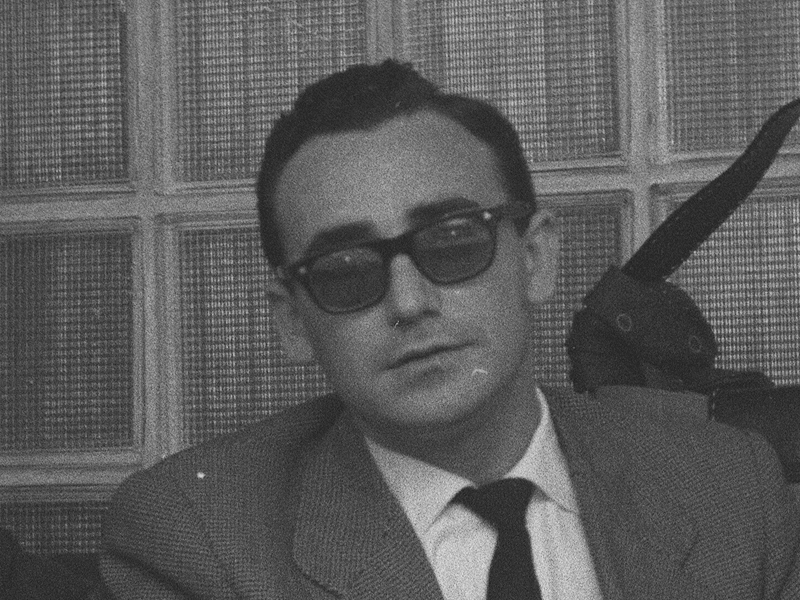
Alfredo Floristán
Alfredo Floristán, from Navarre, was Full Professor of Geography at the University of Zaragoza when he joined School in 1961, where he was a professor for more than 40 years. He was Associate Dean, directed numerous thesis and published important monographs.
In 2010, Pamplona dedicated a place to him.
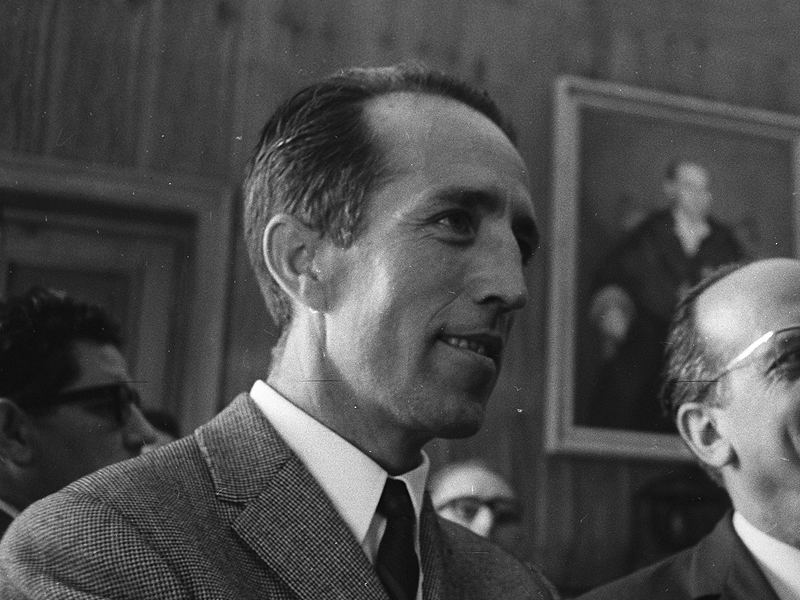
Manuel Ferrer
Manuel Ferrer also came, like Floristán, from the school of Casas Torres at the University of Zaragoza. He definitively joined School in 1962. He was the driving force behind high school of Liberal Arts, which he directed for years. He was Dean between 1968 and 1976.
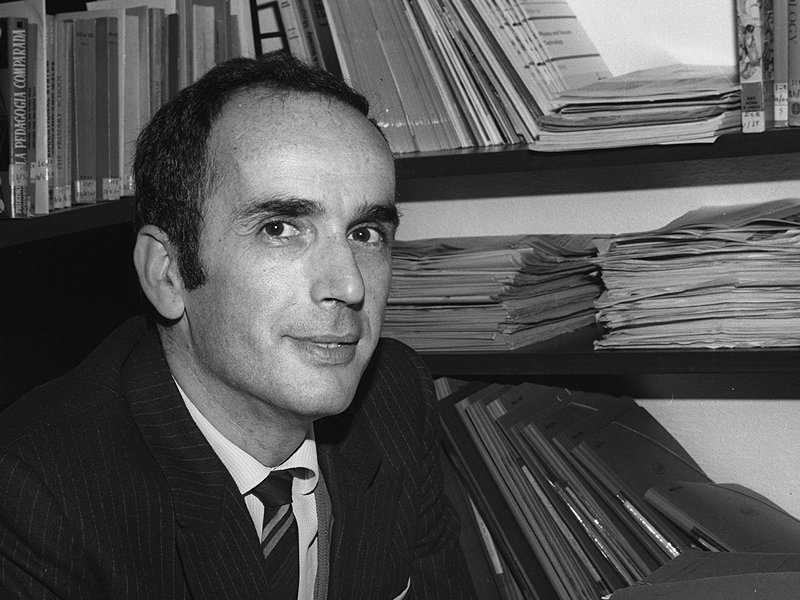
Rafael Benítez Claros
Rafael Benítez Claros, Full Professor of Spanish Literature, joined School in 1962. He spent several years in Pamplona, before moving to Valencia. He was a scholar of the poetry of the sixteenth and eighteenth centuries; and also of other authors and works of the twentieth century.
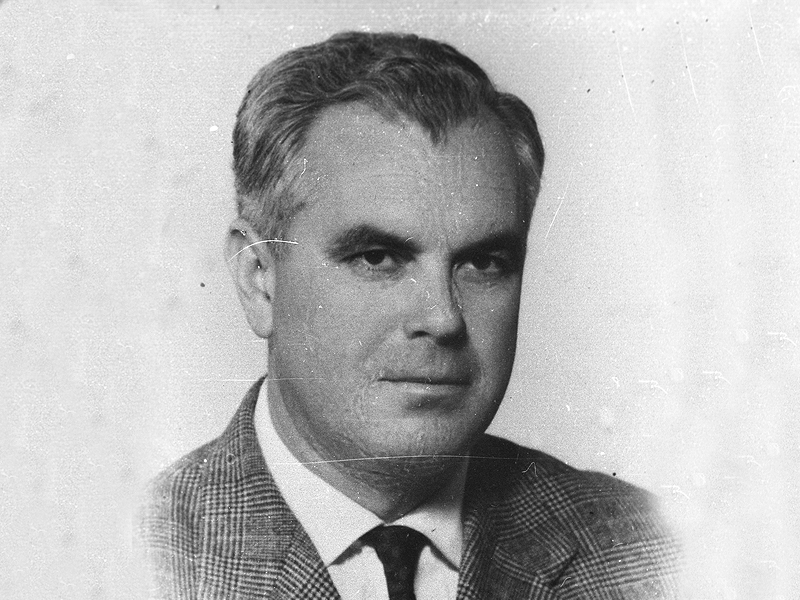
Jesus Cañedo
After the departure of Rafael Benítez, Jesús Cañedo arrived at School , Full Professor, also in Spanish Literature. He had worked in German universities, specializing in both literatures and in comparative programs of study .
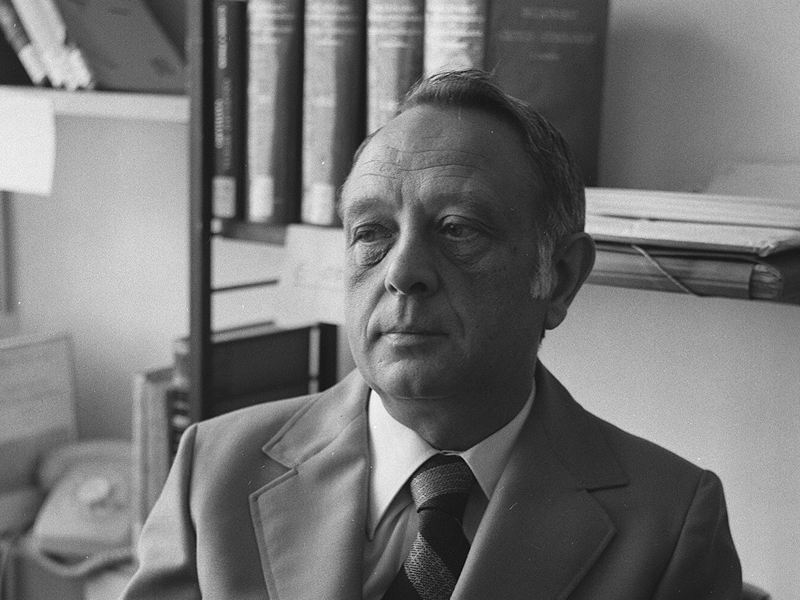
Ana Echaide
An outstanding linguist who joined the School in those years was Ana Echaide, university professor of Spanish language . She devoted great effort to the development of the Basque programs of study .
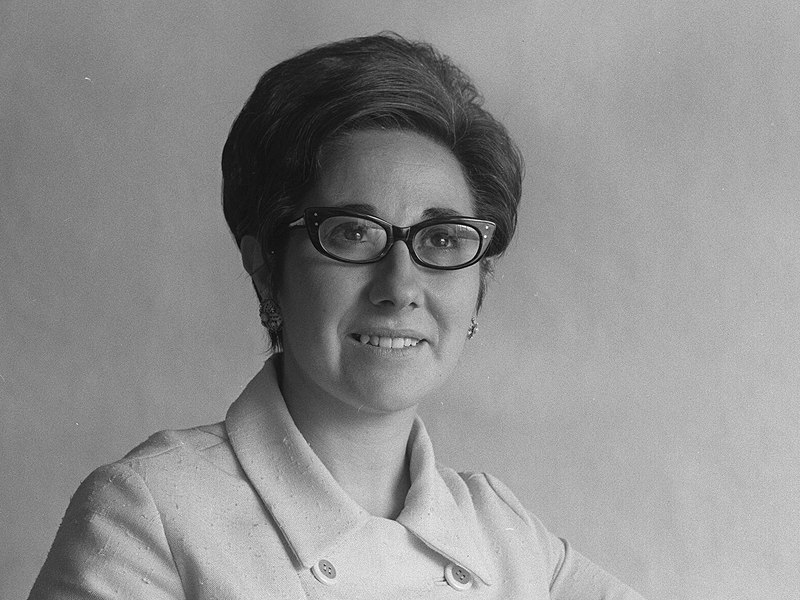
Agustin Lopez Kindler
Agustín López Kindler was one of the first classical philologists of the School. He prepared a good part of his thesis on the sentences of the philosopher Seneca when he was already a professor at the University. After obtaining the Chair in Seville, he was ordained a priest and moved to Switzerland, although he always maintained his relationship with Pamplona.
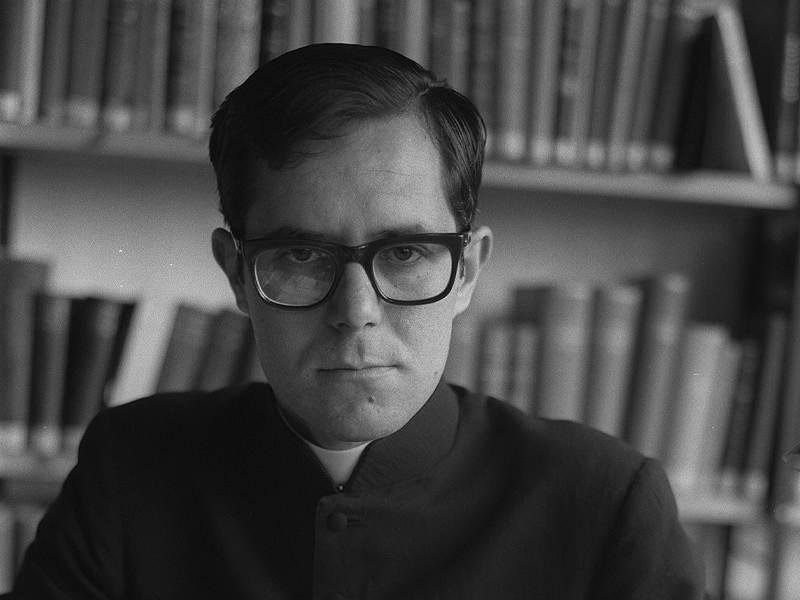
Carmen Castillo
Professor Carmen Castillo was also a pioneer of School. With a degree and doctorate from the Complutense (then University of Madrid), she was for years director of the department of programs of study Classics of the School.
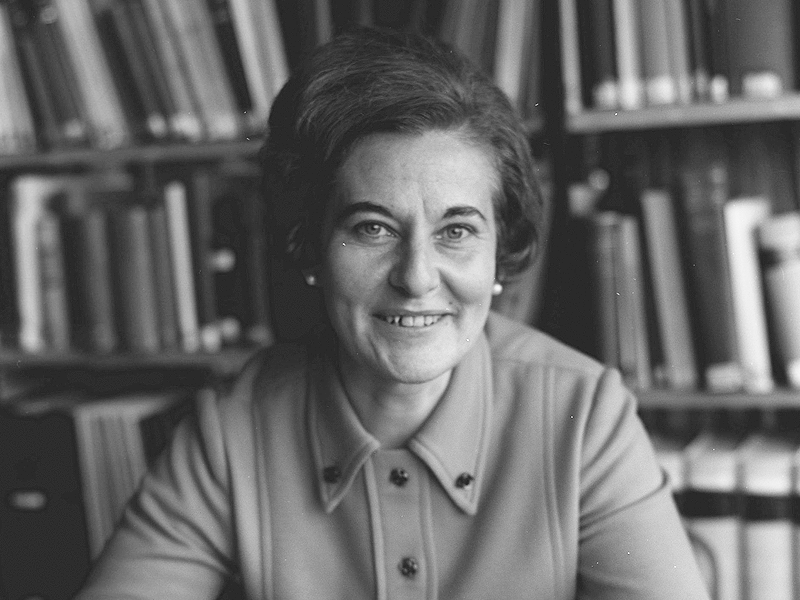
Valentín Vázquez de Prada
Valentín Vázquez de Prada arrived at School in 1970 as professor of "Modern History". In 1959 he had obtained the Chair at the University of Barcelona. He started the department of Modern and Contemporary History.
